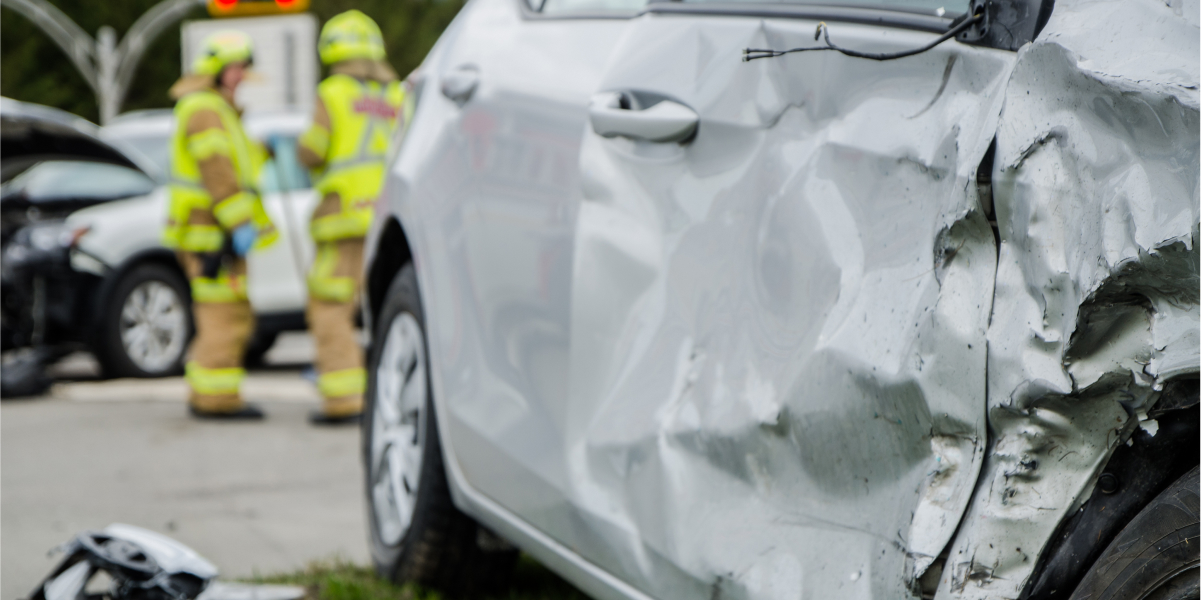When you are experiencing intense pain and the emotional distress associated with a car accidents, your judgment can be understandably impaired. Motorists who drive while impaired by an intoxicating substance or while texting on a cell phone can be held financially responsible when they cause crashes that result in injury to another. Since liability is not automatic even if the other driver is intoxicated, the actions an injury victim takes following a motor vehicle crash can have a profound impact on an individual’s financial recovery.
For more than 39 years, the Atlanta Personal Injury Lawyers at Montlick Injury Attorneys have worked hard to get injured people the compensation they deserve, as part of their goal to be the best personal injury law firm in the United States. Because avoiding these mistakes is essential to successfully pursuing a car accident claim, we invite you to read this blog of the top ten mistakes injury victims make after a collision.
Mistake No. 1 – Failing to Exchange Insurance Information
Drivers who do not immediately notice injuries sometimes do not exchange information with the other driver because neither vehicle is damaged in the crash. The decision to forgo obtaining driver’s license, insurance and contact information from the other driver can have devastating consequences if you subsequently experience injury symptoms. The assumption that a lack of damage to the vehicles means you were not seriously injured is often not correct. The bumpers of motor vehicles are designed to withstand the force of a collision, but the human body can be injured by far less energy being exerted on the body.
Mistake No. 2 – Permitting the Other Driver’s Insurance Adjuster to Visit You in Person
Even if the insurance adjuster for the at-fault driver seems amicable, a face-to-face meeting (or even a recorded statement) without legal representation or advice of counsel can be a very bad idea. The job of the insurance adjuster is to minimize the liability of the insurance company. The adjuster can use this meeting to observe your behavior for examples of conduct that might be considered inconsistent with your reported injuries. The adjuster also will note inconsistent statements or admissions that might be used by the insurance company to justify denying you claim, or to reduce its value.
Mistake No. 3 – Failing to Promptly Obtain Medical Attention
The emotional upheaval and shock associated with an auto accident can mask symptoms arising from car crash injuries. When injury victims procrastinate in obtaining medical care, a prognosis can worsen, or valuable medical evidence can be lost. The insurance company typically will point to the delay itself as evidence that a claimant did not suffer serious injury.
Mistake No. 4 – Signing a Release Immediately Following an Accident
There are certain types of accidents where the question of liability is reasonably clear. When the prospects of the insurance company winning on the issue of fault is not promising, insurers look for ways to mitigate the amount they pay in a settlement or judgment. A common approach is to make a settlement offer immediately following the accident for far less than the value of the claim. However, the insurance company also will expect you to sign a release waiving any and all claims which includes those that you do not even know exist. No documents from the insurance company should be signed until they have been reviewed by an experienced car accident lawyer, so you can learn about your rights and legal options.
Mistake No. 5 – Consenting to Provide a Recorded Statement to the Liability Adjuster.
Recorded statements are not designed to facilitate settlement of your claim although the adjuster for the other driver’s insurance company might tell you that this is the case. The purpose is to preserve a record of you saying things that they hope will undermine your claim. The answers you give to questions might be used to shift blame for the accident to you or to establish that your loss is not as substantial as you are claiming.
Mistake No. 6 – Agreeing to Settle for Policy Limits
While it might seem reasonable to settle with the adjuster for policy limits, this offer will come with strings. The adjuster will insist that you sign a release that waives all claims. Policy limits can be extremely inadequate especially if the other driver only carries the minimum coverage for bodily injury that is required under Georgia law. It is important not to waive your rights without legal advice because you might have the right to recover more against an Excess Liability Carrier, other defendants or underinsured motorist coverage.
Mistake 7 – Failing to Seek Out an Experienced Atlanta Personal Injury Law Firm
Although some people attempt to handle their own personal injury claim, complex legal standards, evidentiary standards and procedural hurdles make the civil litigation system virtually impossible to navigate without an experienced lawyer. The cost of pursuing a claim propertly can also be very costly, so most people cannot afford the war chest necessary to take on large insurance companies in court. The best approach is to work with an experienced personal injury attorney. At Montlick Injury Attorneys, Attorneys at Law, we have been helping injured people get the compensation they deserve since 1984.
Mistake 8 – Ignoring the Possibility of Punitive Damages
When a court awards punitive damages, this compensation can exceed all of the types of compensatory damages you are awarded. Car accident claims need to be sufficiently investigated to determine if punitive damages are appropriate. Examples of situations where punitive damages might be awarded include accidents caused by an alcohol-impaired driver, or a vehicle manufacturer that covers up evidence that its vehicle is unsafe.


